Obituary: Walid Daqqa, who spent 38 years in Israeli jails and battled cancer
By Maryam Qarehgozlou
“You are the most beautiful smuggling of my memory. You are my message to the future,” jailed Palestinian activist and novelist Walid Daqqa, who died of medical negligence and custodial torture on Sunday after serving 38 years in Israeli prisons, wrote in a letter to his daughter.
“Who will take the rest of my life and grant me a moment of embrace with your tiny arms? Who, my little one, who with your tiny hands brushed against my heart, making the pulse steady, the body heal, and decades of pain vanish? Who, my heart’s joy, will come to rest on her father’s chest, so he can caress her soft hair,” the 62-year-old doting father wrote on his daughter Milad’s birthday.
Daqqa was born on July 18, 1961, in Baqa al-Gharbiyye, a city in the occupied territories.
He obtained a bachelor’s degree in the interdisciplinary study of democracy and a master’s degree in regional studies from al-Quds University in occupied Jerusalem al-Quds.
In 1983, he joined the ranks of the Popular Front for the Liberation of Palestine (PFLP), and a military cell affiliated with the organization, which aimed to struggle for the liberation of occupied territories.
After receiving training at the PFLP’s military bases in Syria, Daqqa contributed to the formation of a secret military apparatus for the outfit whose mission was to collect information about Zionist regime leaders and officials who were complicit in massacres during the invasion of Lebanon.
Daqqa was arrested for the first time in 1986 when he was 24 years old, and sentenced to life imprisonment for allegedly kidnapping and killing an Israeli soldier in 1984.
In 1999, he married Sana Salameh while behind bars. In 2020, Sana gave birth to Milad. The baby girl was conceived after Daqqa’s sperm was smuggled out of prison.
Daqqa gave shudders to the regime officials even behind bars. They punished and sent him to solitary confinement to torture him psychologically but he stood his ground.
He was known as a theorist and thinker and won many awards for his writings.
“Daqqa was among the most prominent prisoner intellectuals, with several works to his name, notably ‘Melting the Consciousness,’ ‘Parallel Time,’ and the novel ‘The Secret of the Oil Story,’ which received local and Arab awards,” Lema, a diplomat at the Palestine Mission to the European Union, wrote in a post on X, formerly Twitter.
PFLP paid glowing tribute to the legendary activist and intellectual, saying he was one of the “prominent symbols of prison literature” who had a “rich and distinguished” intellectual and literary experience that was unparalleled in its influence on the lives of the prisoners.
“He contributed important intellectual and literary studies to the Palestinian, Arab and international library,” PFLP said in a statement after his custodial death.
In 2012, Deqqa’s life sentence was reduced to 37 years in prison which would have allowed him to get out in March 2023.
But Israeli authorities extended his sentence and set his release date for March 2025, claiming that he had tried to smuggle mobile phones into prison in 2018.
The extension of his incarceration came despite him being diagnosed with a rare form of bone marrow cancer in December 2022 and a previous fight with leukemia and a stroke.
For acts like this “other prisoners would have received a few days in solitary confinement. But they don’t want Walid to get out,” his wife was quoted as saying.
After he was diagnosed with cancer, rights groups began requesting medical parole which Israeli authorities rejected, according to the Palestinian Prisoners Club, an association of Palestinians who have been held in Israeli prisons.
Daqqa was among 23 prisoners the Israeli regime refused to release in all exchange deals. Israeli authorities also decided against placing him on the list of released long-term prisoners in 2013-2014.
According to a statement from the International Union of Left Publishers (IULP), which called for his release last year, Daqqah was subjected to “extra levels of the routine torture, abuse, and neglect that Palestinian prisoners face in the Occupation’s jails.”
Addameer, a rights group that supports Palestinian prisoners, also said last year that Daqqa was in “dire need of urgent medical attention”, and that Israeli authorities are denying him the treatment he was prescribed, and called for his “immediate release.”
The Palestinian Commission of Detainees and Ex-Detainees Affairs said Daqqa’s death was caused by a “slow killing” policy carried out against ill Palestinian prisoners by the Israeli prison administration.
Palestinian prisoner groups have repeatedly reported that Palestinians in Israeli prisons are being denied medical care, which pushes those like Daqqa to the brink of death.
Recent testimonies point to an alarming rise in human rights violations in Israeli regime jails since October 7, after the Hamas resistance group carried out Operation Al-Aqsa Strom against the regime.
At least 10 Palestinians have died in Israeli prisons since Israel’s war on Gaza began, according to Palestinian news agency WAFA. But an investigation by Israeli daily Haaretz revealed that the number was actually at least 27. Rights groups put the number even higher.
After the news of Daqqa’s custodial murder was announced on Sunday, a rally was called in Ramallah in memory of one of the most prominent Palestinian prisoners and in protest against the medical neglect faced by him and more than 9,000 other Palestinian prisoners kept in Israeli jails without charge.
In a statement on Sunday, PFLP said Deqqa was one of the “generals of steadfastness”, and the “distinguished” national and Front leaders.
“As the Popular Front for the Liberation of Palestine bids farewell to its comrade, the leader, thinker, writer, inspiration and great theoretician, it pledges to him to be loyal to his national, intellectual and Front legacy, through which he made Palestine and the cause of its liberation his compass,” PFLP said.
“Until his departure, he remained inhabited by Palestine, all of Palestine from its river to its sea. Glory to the great martyr of Palestine and humanity.”
Venezuelan military stands with acting president after US kidnapping of Maduro
VIDEO | Press TV's news headlines
VIDEO | Protesters in Toronto slam US kidnapping of Venezuelan president
Israeli troops detain, intimidate Palestinian toddler in West Bank
Iran says its investments in Venezuela face no major risk
Make ‘right decision’ or face more US pressure, Rubio tells Venezuela’s Rodriguez
VIDEO | General Soleimani honored in Kashmir, Kargil
US, Israel waging ‘soft warfare’ to destabilize Iran after June defeat: Top general


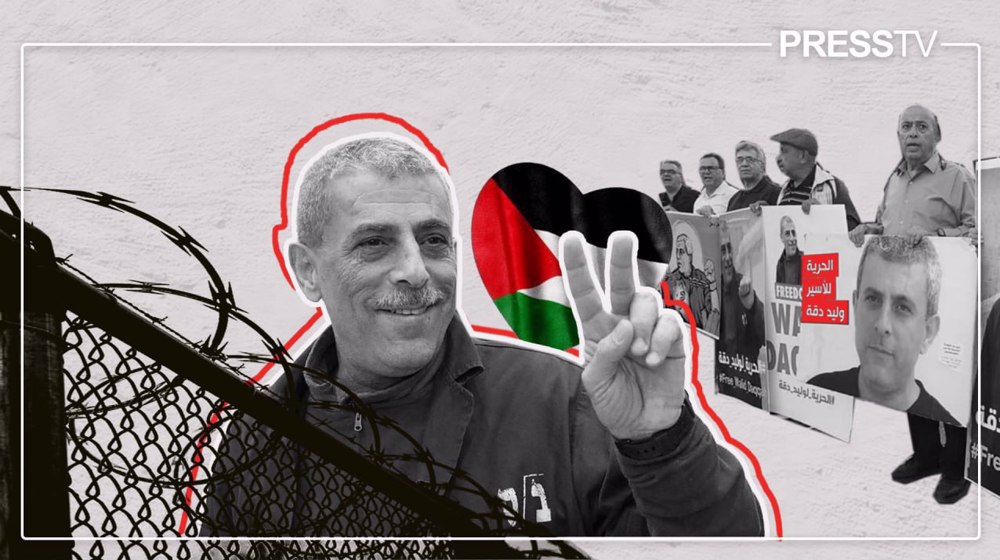
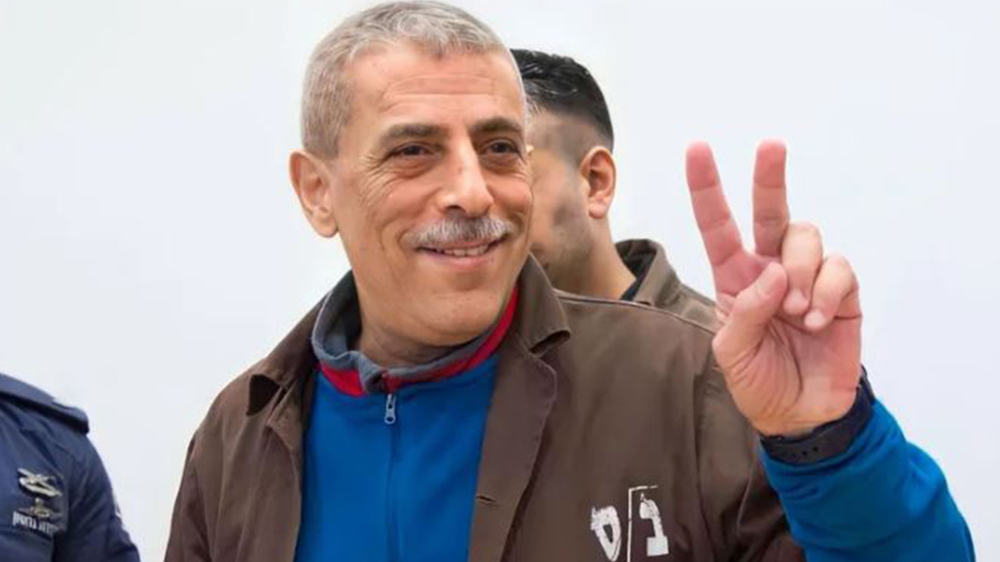
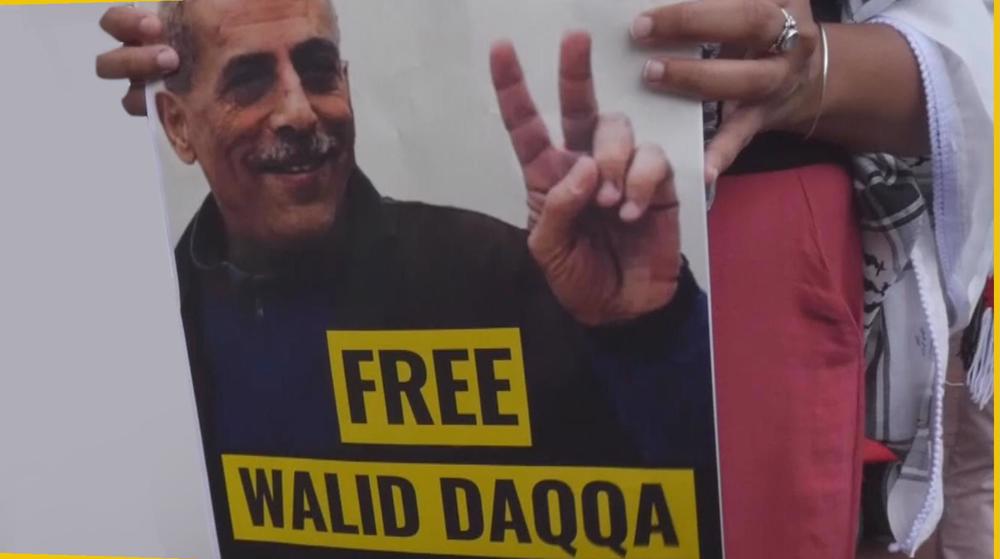
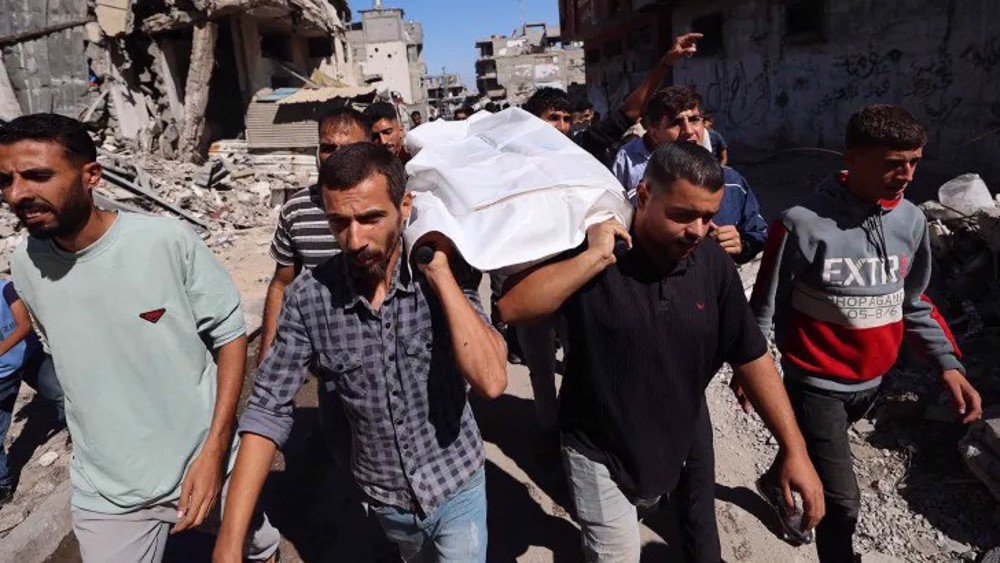
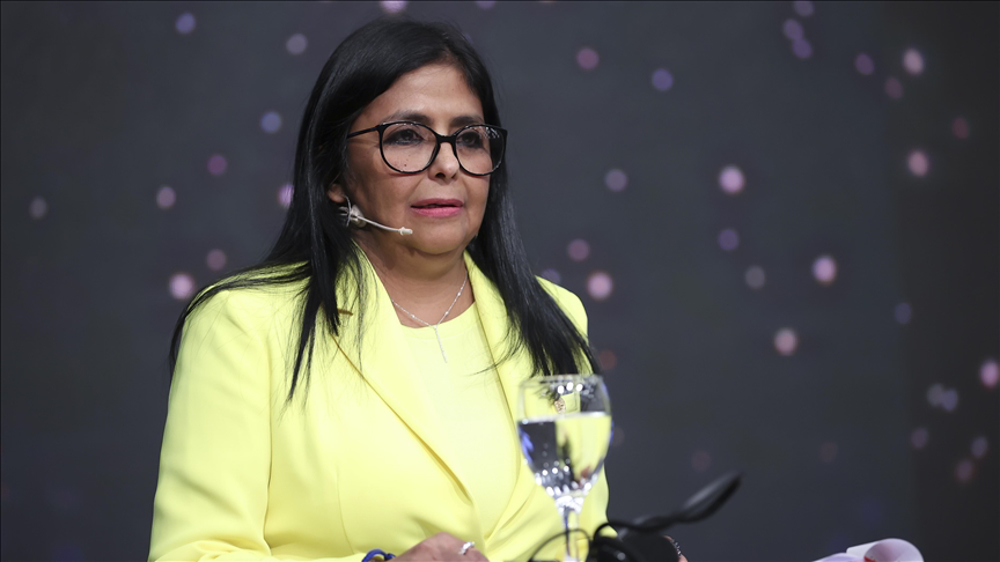
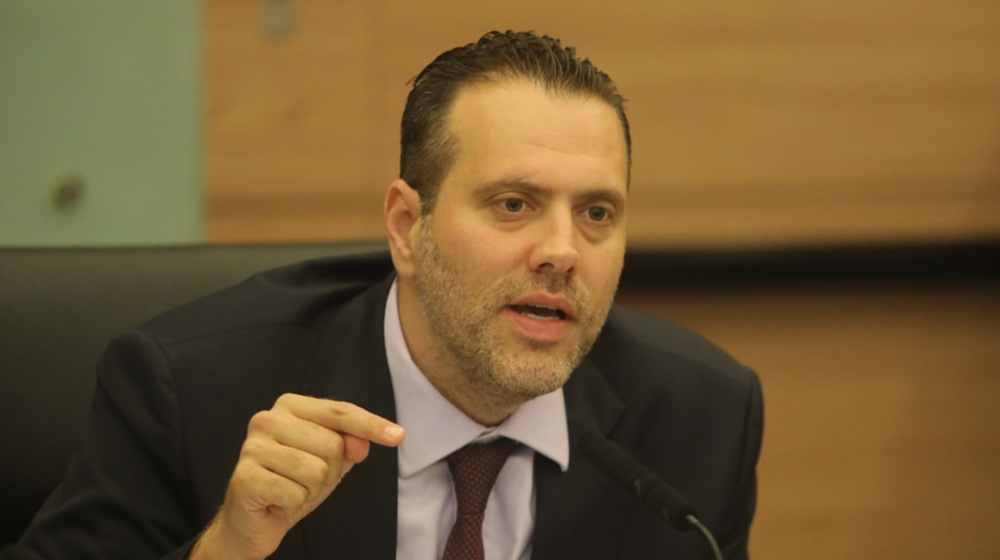




 This makes it easy to access the Press TV website
This makes it easy to access the Press TV website